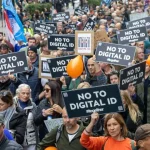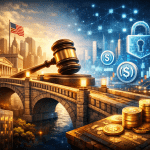AI’s Job Takeover: "Totally Gone"
At a fireside discussion hosted by the Federal Reserve’s Capital Framework for Large Banks conference, Sam Altman made a sobering prediction: some job categories are already obsolete. “Some areas, again, I think just like totally, totally gone,” he said, pointing directly to customer service. According to The Guardian, Altman argued that the shift in customer support is essentially complete—modern AI systems handle calls without phone trees, transfers, or human intervention. “It can do everything that any customer support agent at that company could do. It does not make mistakes.”
AI Diagnosing Better Than Doctors?
Healthcare, too, is undergoing a radical AI transformation. Altman told the crowd that ChatGPT can now outperform most doctors in diagnosing illnesses. “Most of the time, it’s a better diagnostician than most doctors in the world,” he claimed. Yet he also expressed caution, stating he wouldn’t feel comfortable removing human oversight entirely. Altman added, “I really do not want to, like, entrust my medical fate to ChatGPT with no human doctor in the loop.”
A Pivot to Washington—and to Trump’s AI Playbook
Altman’s visit to Washington coincided with the unveiling of the Trump administration’s new “AI action plan,” focused on deregulating datacenter construction and outpacing China in AI advancement. According to Reuters, the plan emphasizes global U.S. AI leadership and reducing bureaucratic barriers.
In contrast to OpenAI’s previous calls for AI regulation under the Biden administration, Altman now seems aligned with the accelerationist agenda. He told regulators that while AI’s benefits are enormous, the risks are equally potent—especially in the wrong hands.

An employee departs as AI-powered robots await to replace human jobs, illustrating the workforce shift predicted by AI leaders.
AI as a Weapon: Financial Sabotage and Voice Fraud
Altman voiced concerns over how hostile governments could exploit AI to wreak havoc on U.S. infrastructure. One scenario that “keeps him up at night,” he said, is a foreign actor targeting the U.S. financial system with AI-enabled cyberattacks. He also pointed to AI voice cloning as an emerging risk. According to The Guardian, Altman warned that financial institutions still using voiceprint authentication are now vulnerable to fraud.
From Code to Congress: OpenAI’s New Power Play
OpenAI is now firmly planting roots in Washington. According to Axios, Altman announced that OpenAI will open its first D.C. office next year and is actively engaging with lawmakers. He also appeared before the Senate Commerce Committee—his first testimony since his high-profile session in 2023 that cemented his political relevance.
As Washington's tech focus tilts from old-guard names like Elon Musk to emerging AI giants, Altman’s expanding role signals a major recalibration of power and influence.
People Also Ask (FAQs)
Which jobs are most vulnerable to AI disruption?
Customer support roles are among the first to be fully automated by AI, with many routine and repetitive jobs likely to follow as AI technology advances.
Can AI really diagnose illness better than doctors?
In many cases, AI systems can provide more accurate and faster diagnoses than human doctors, but human oversight remains essential to ensure patient safety and ethical care.
What is the current government approach to AI policy?
The government is focusing on deregulating certain AI infrastructure sectors, promoting rapid development, and competing globally to maintain leadership in AI technology.
How is OpenAI engaging with policymakers?
OpenAI is increasing its presence in Washington by opening an office, engaging with lawmakers, and participating in congressional hearings to help shape future AI regulation.














